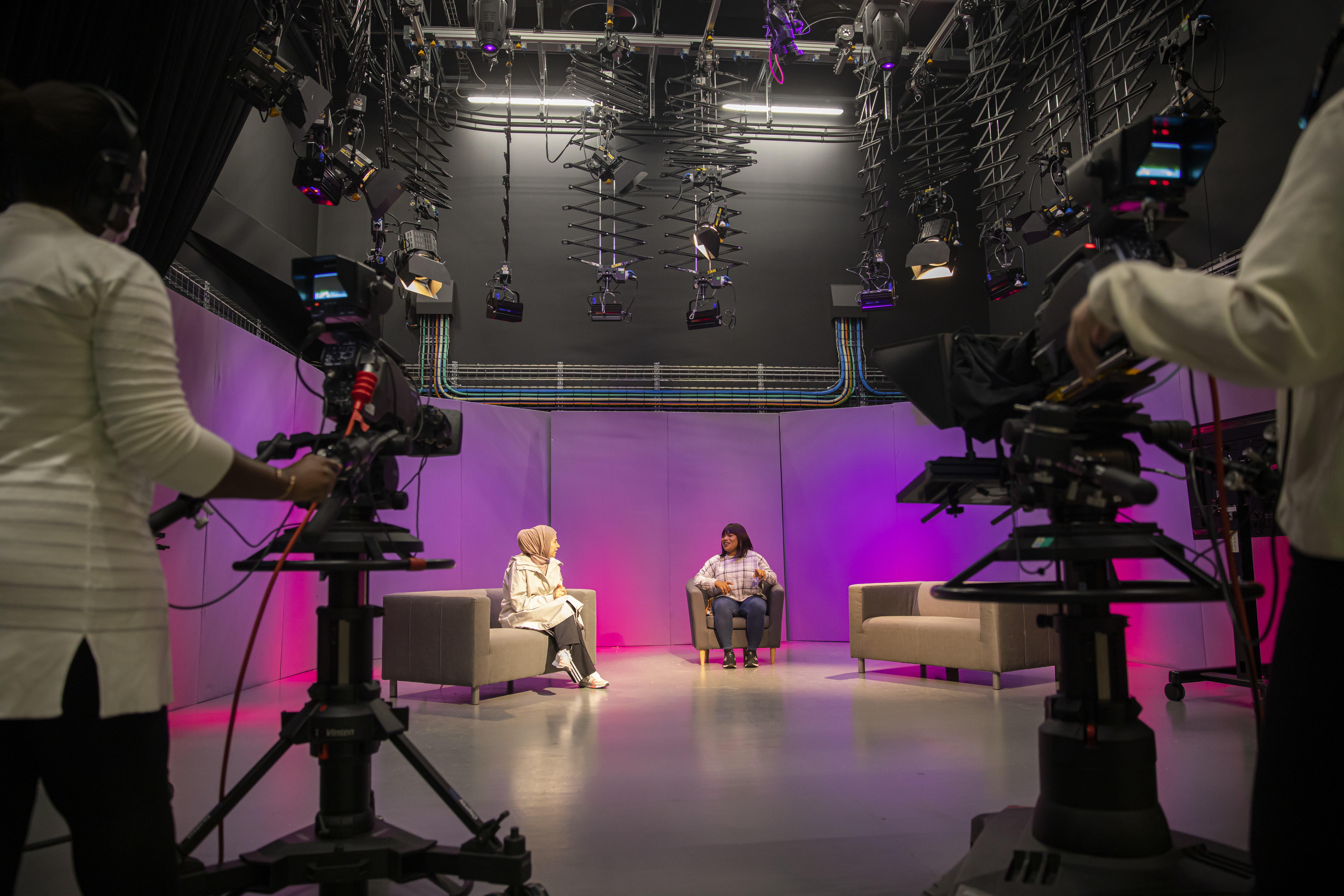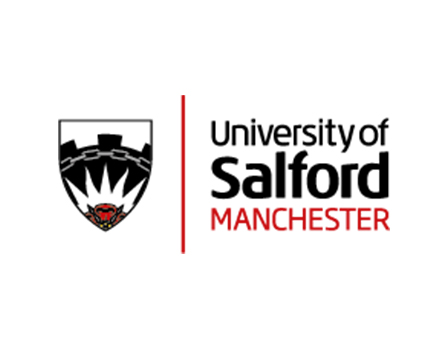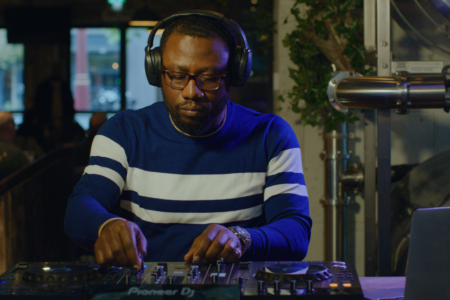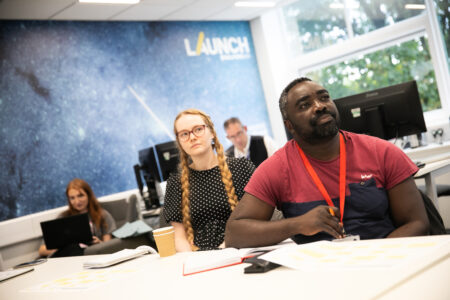When it comes to creative subjects, the best way to learn is simply to do. Whether that’s picking up a camera and editing your footage into a story, using fabrics to design your own unique pieces, or telling a story through words on a news page. There’s no better way to develop your passion than to explore it.
People from across the globe come to strengthen their careers and skills in Manchester at the University of Salford, so you have much to learn from your peers. With about 4,500 international students, Salford was voted as a top 10 UK university for international students in the Whatuni Student Choice Awards 2024. That’s because the university is well worth taking the leap for, with a vibrant and dynamic environment that provides learning by doing opportunities for students.
At the School of Arts, Media and Creative Technology, academic learning blends with practice. Students get more than just a few chances to flourish in their creative pursuits, partly thanks to the industry-focused approach to the postgraduate curriculum. The school’s close relationships with industry partners allow students to take part in creative collaborations, live projects, networking opportunities, and so much more.
“I enjoyed how the master’s course allowed me to specialise in the areas that I am most interested in. I was encouraged to think critically and logically,” says Patrick He, a MA Visual Communication graduate.
He also won the Student of the Year Award at the Create Awards. “My favourite project was when I created a new typeface which was based on the handle of the bus, to connect everyday life into my design,” he says.

Combining state-of-the-art facilities, lecturers with industry experience, industry partnerships and projects; stationed in the media hub of Manchester — Salford’s got it all. Source: University of Salford
The university runs a diverse range of postgraduate programmes. Whether you’re looking to enhance your skills, or move to a new path, there’s an MA programme out there to suit your needs. In art, design, and fashion, there are programmes like Visual Communication or Fashion Business and Marketing. Production Management for TV, Film and Digital Media is an option for digital storytellers. There are journalism options too, with programmes like International Journalism for Digital Media and Public Relations and Digital Communications.
“As soon as I read the course description, I knew MA Public Relations and Digital Communications was the right course for me,” says graduate Sibongiseni Zondi. “It was clear from the outset the course was forward-thinking and designed to prepare the communication professionals of the future.”
Since graduating from Salford, Zondi has secured two roles in Eswatini. One as a social media manager for the prime minister’s office and another as a communications officer at the Ministry of Sports Culture and Youth Affairs. In both roles, he uses the skills he sharpened in Salford, including a global perspective of communication, crisis communication, social media management, and content creation.
“The lecturers’ backgrounds in the industry were of massive interest to me. I felt they had lots of experience I could learn from,” says Zondi. “Completing this course has helped me towards my goal of developing the digital communications industry back in Eswatini.”
A huge factor in Salford’s effective approach to education lies in how industry-focused it is. Placements in the creative and digital sectors are common and students benefit from Salford’s links to creative businesses across Greater Manchester. The school offers support to help you secure a placement, whether it’s through the lecturers who are active in their sectors and have many connections, the university’s career services, workshops, or networking events.
And one can hardly mention the school without talking about its location.
Industry giants surround the MediaCity campus. Think BBC and ITV. Both major broadcasters where international students have undertaken placements, getting hands-on experience in script writing, editing, and post-production. Journalism students have worked for news corporations like Manchester Evening News, reporting on current events in a fast-paced environment. With 250 digital and media businesses in the area, it’s a prime space for collaboration between students and professionals.

Students and faculty can travel from the MediaCity campus to the New Adelphi facility for free by using the 50 bus. Source: University of Salford
The studios and specialist spaces on campus have advanced hardware and software equipment. They include television and radio studios, post-production audio and video suites, animation, and VFX studios, and performance spaces. Students can also get involved with the university’s news channel, Quay News.
And, there’s a second building for the School of Arts, Media and Creative Technology over at the Peel Park campus — New Adelphi. That’s where you’ll find many fashion, graphic design, and performing arts students. There’s an exhibition centre, the New Adelphi theatre, as well as innovative art and design studios.
With great facilities, and enviable industry partners, the real-world experience here is next level. Within their programme, students get to work on industry projects — real client briefs, which involve content creation, marketing campaigns, or design projects. Film students produce short films, while journalism students write investigative pieces. Whatever form they take, all projects put them under the pressure of professional expectations and allow them to understand the client-consultant relationship and the urgency of deadlines.
It’s the start of building well-rounded individuals for successful, full-fledged careers in the arts.
For the unique chance to busy your hands with the creative industry within your postgraduate degree programme, check out Salford’s School of Arts, Media and Creative Technology today.
Follow the University of Salford on Facebook, X, Instagram, and YouTube.













